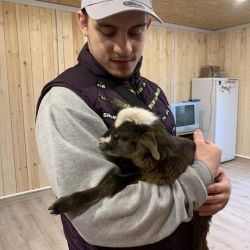Origins and Temperament
Steeped in heritage, the Basset Hound dates back to French ancestry, bred for hunting small game. These scenthounds are distinct for their remarkable loyalty, gentle disposition, and sometimes stubborn nature. When traveling, their laid-back temperament is a boon, yet their inborn persistence might require extra patience. Considering their sensitivity to tone and mood, catering to their emotional comfort during transport is essential.
Size and Physical Needs
Basset Hounds typically weigh between 40 to 65 pounds, with a sturdy build and short legs. While they enjoy lazy moments, they necessitate moderate exercise to maintain their health. On the road, their unique stature means a comfortable and secure space is needed to accommodate their length and prevent injury. Ample room for stretching out and padding for joint support during travel are a must-have for these endearing pooches.
Common Health Considerations
Bassets are predisposed to certain conditions like ear infections, eye disorders, and joint issues. It's important that travel plans incorporate stops for cleaning and inspection if necessary. Required health documentation, such as vaccine certificates and a recent health check (sometimes within ten days of travel), are mandatory for a worry-free journey.
















